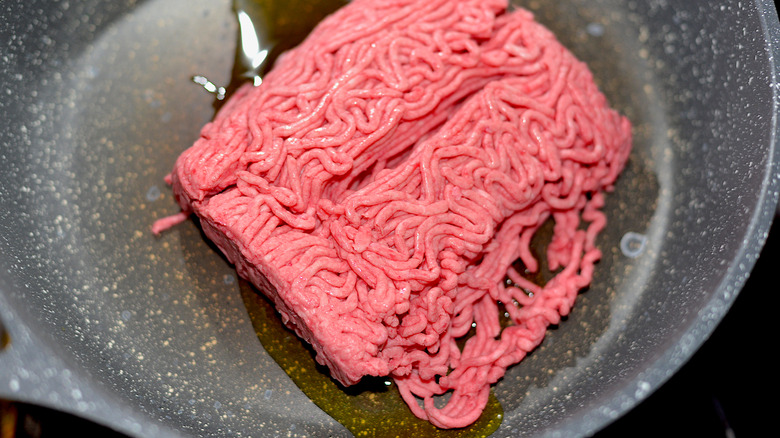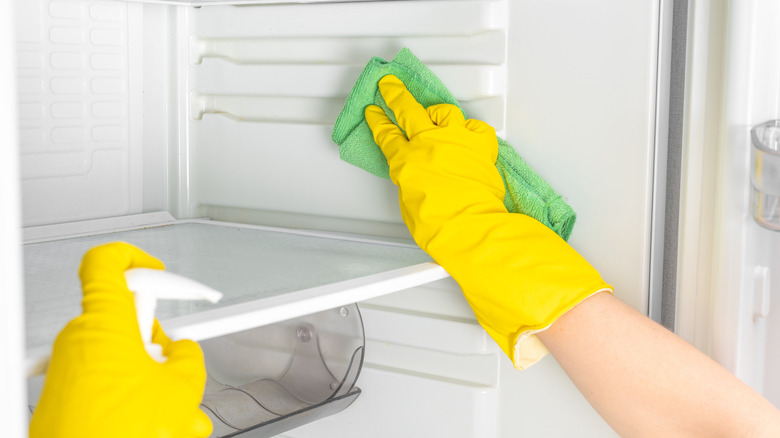Don't Try To Cook E. Coli To Kill It. Here's What To Do With Recalled Food Instead
We may receive a commission on purchases made from links.
If it seems like recalls related to E. coli are on the rise, you're not imagining things. While there are some upsides to the situation (namely, it's good that the food industry has sophisticated safety measures to catch potential outbreaks), it's still pretty scary stuff. The McDonald's Quarter Pounder E. coli outbreak will live on in many of our memories. Even vegetables don't seem safe to eat anymore with many recent outbreaks linked to fresh produce. If you end up with a food item that is the subject of a recall, you might think about cooking it to kill the bacteria. But, you absolutely shouldn't.
There are so many things that can go wrong when attempting to cook something to the proper temperature to kill foodborne pathogens (E. coli bacteria is safely eradicated at 160 degrees Fahrenheit, but you have to be precise). If you don't have a meat thermometer, for example, you'll just be guessing at the temperature. It's just not worth the risk when you know your food is potentially contaminated. Instead, be safe and throw it out straight away.
How to properly dispose of recalled food
If you check your fridge and find food that is part of a recall, there's no need to panic. You will want to throw the food into the garbage can immediately, but also wash and sanitize any surface that the product (even in its packaging) has touched. This means removing anything else on that shelf or in the drawer, giving the surface a good clean with soapy water, and then sanitizing with Lysol wipes or disinfectant spray. You should also take care not to touch your face while cleaning, especially your mouth, and thoroughly wash your hands afterward.
If you ate food that has been recalled, you'll want to be on the lookout for signs and symptoms of E. coli infection, which can develop up to 10 days after consumption. Symptoms often mimic the flu — think fever but with accompanying gastrointestinal distress, like diarrhea. cramping, nausea, and vomiting. If you do develop significant symptoms, seek medical attention and let them know that you ate potentially contaminated food. It's also important to closely monitor children under five years old and adults older than 65, as well as immunocompromised individuals. These groups are at high risk of foodborne infections turning serious.

